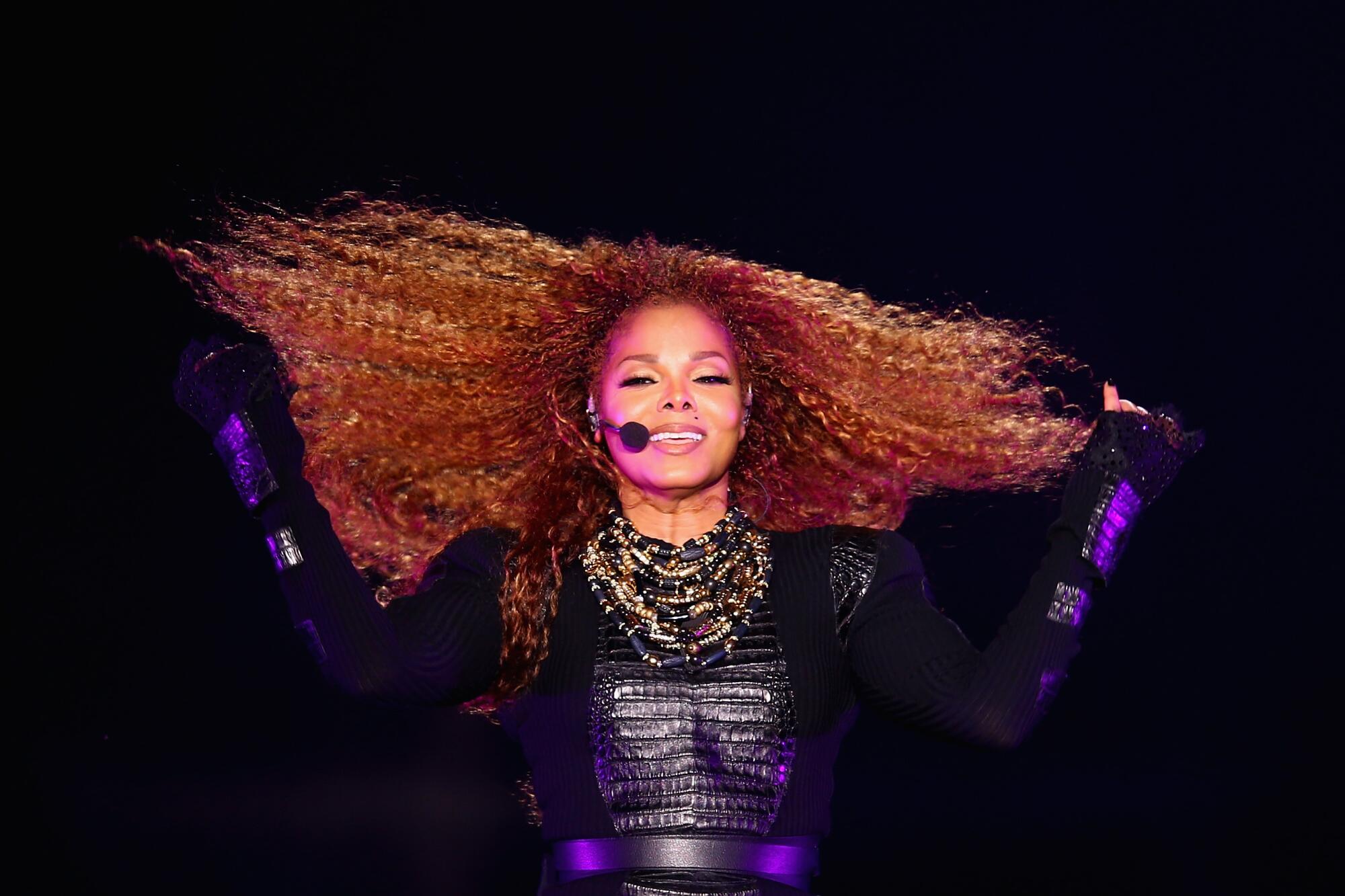
- Share via
At 55 years old, Janet Jackson has lived a life of such incident — a childhood in showbiz, marriage, divorce, the death of her superstar brother Michael, a few of the greatest albums in pop-music history — that a comprehensive documentary about her could easily last 10 hours.
Alas, four hours is what the Lifetime and A&E Networks gave her over the weekend for “Janet Jackson,” a two-night docuseries directed by Benjamin Hirsch and executive produced by the singer herself along with her brother Randy.
To discuss the show and assess whether it did Jackson justice, Times pop music critic Mikael Wood gathered with Times staff writer Suzy Exposito and pop-culture journalist Julian Kimble.
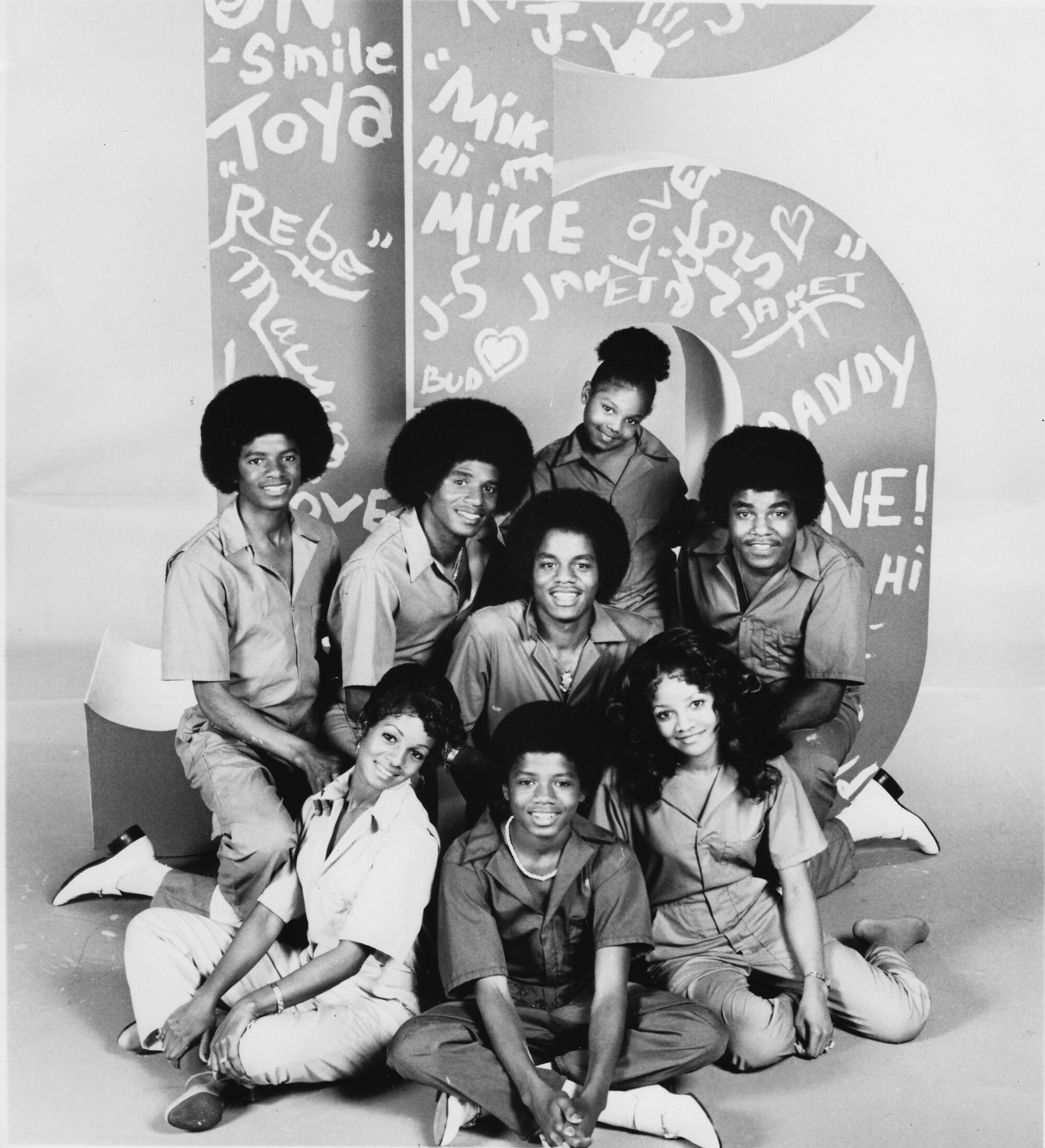
MIKAEL WOOD Given the way the docuseries was promoted in advance — all the drum-beating about finally revealing the inner thoughts of this very private and mysterious artist — it seems only fair to start by asking if “Janet Jackson” delivered on that promise.
I’d say no: For the most part this felt like a pretty familiar recounting of Jackson’s life and career, with only glancing references to some of the episodes people are most curious about. She talks a bit about her troubled marriage to James DeBarge and addresses long-running rumors that the couple had a secret child. But she more or less skips over the sexual-abuse allegations against Michael (and how they affected her) and her father’s legendarily rough treatment of her and her siblings. The Super Bowl breast-baring incident gets a long look but with minimal input from Janet herself; indeed, her insistence that she and Justin Timberlake have moved past it feels deeply unsatisfying.
And unless I missed it, I think she literally doesn’t even mention her marriage to Wissam Al Mana in 2012?
But maybe looking for insight into all this personal turmoil is doing Janet a disservice. Maybe the story we should’ve come to “Janet” for is the story of her unique creative path and of her incredible music, lots of which I was happy to hear in the docuseries. (There’s one advantage of a doc’s subject being in charge of its content.)
JULIAN KIMBLE Despite the positioning, this was never going to be a “tell-all” — it was going to be a tell-all that Janet Jackson cares to say to the public at this point in her life.
She’s been intensely private and understandably skeptical of the media throughout her career; there’s a Rolling Stone profile from the “Rhythm Nation” era that mentions her requesting final approval of the piece. She’s extremely selective in choosing who gets access to her, which makes sense to me considering everything she had to deal with growing up as a member of the Jackson family. She learned to operate within a bubble, so when it comes to what’s behind the velvet rope, so to speak, we’re only going to get what she wants to give. She’s protecting herself and the family here.
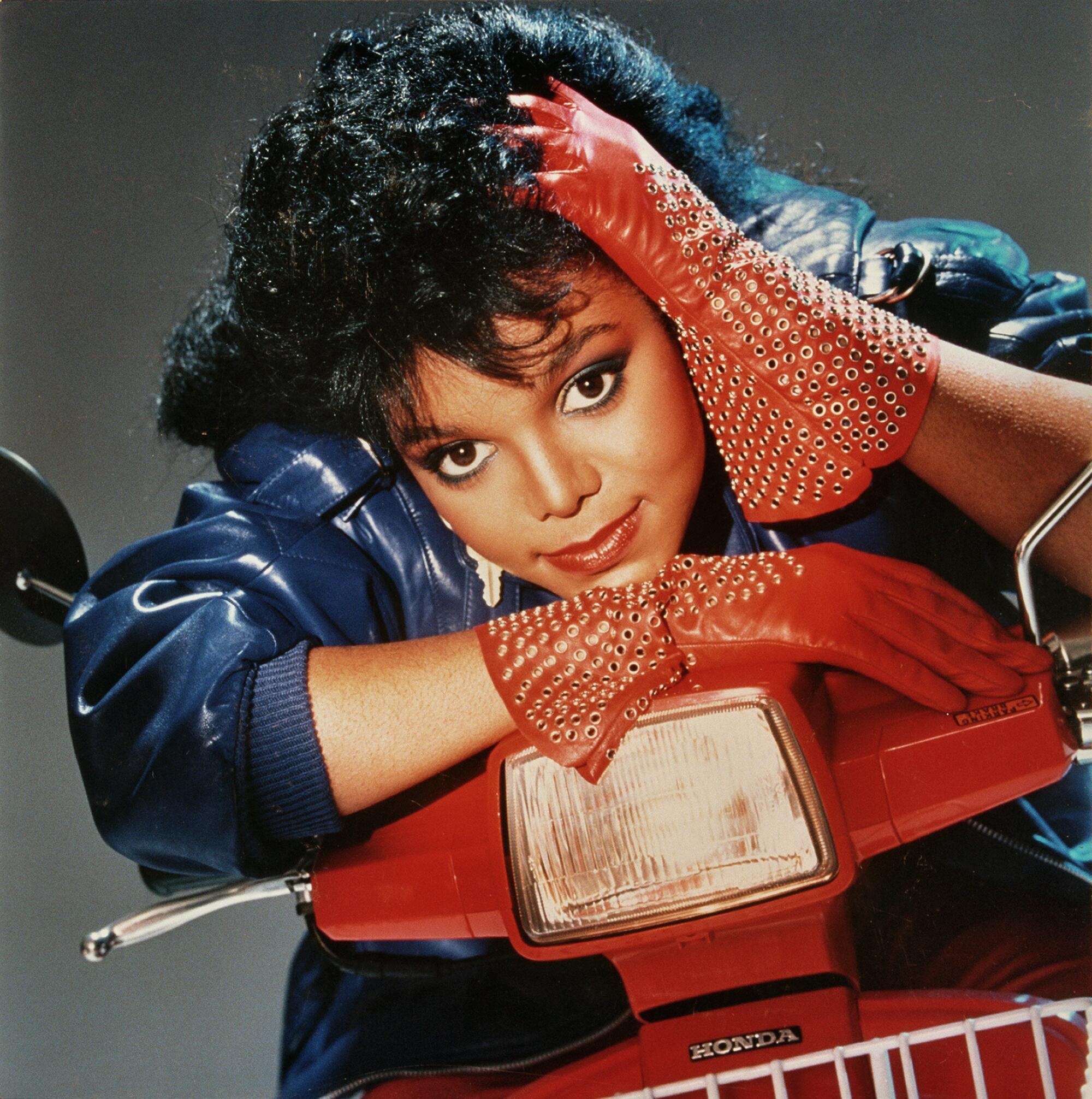
SUZY EXPOSITO Being in control has been a lifelong battle for her. She wrestled for creative and professional control from her father, Joe, then battled for control over her public image and bodily autonomy from her ex-husband René Elizondo. She continues to fight for control over her narrative.
There is power in being able to name your own experience as a woman. Janet reserves the right to name what happened to her, in her own terms.
WOOD We’ve asked her to answer for an awful lot of other people’s actions.
EXPOSITO Janet has a nurturing soul, and her MO is extending grace to the people she loves. This means protecting her family despite what we might see as an enmeshed dynamic with her father, with whom Janet felt empowered to establish boundaries only once she became a wife. And despite the gradual estrangement from her brother Michael — who people in the business began to frame as her professional competitor — at no point in this series does anyone say what he was alleged to have done.
What Michael went through is something Janet feels uncomfortable to name, still, even as she affirms, “I know my brother. He didn’t have that in him.”
KIMBLE As for engaging with her music and identity as an artist, the docuseries managed to touch on why each album through “All For You” came out the way it did, but I would have enjoyed more detail about the actual music: the Minneapolis sound and early new jack swing of “Control”; the ambitious decision to cover multiple genres on “Rhythm Nation” while being simultaneously cool and civic-minded — then sticking the landing as she did; the quintessential ’90s smoothness of “That’s the Way Love Goes” on “Janet,” then “Got ’Til It’s Gone” on “The Velvet Rope.”
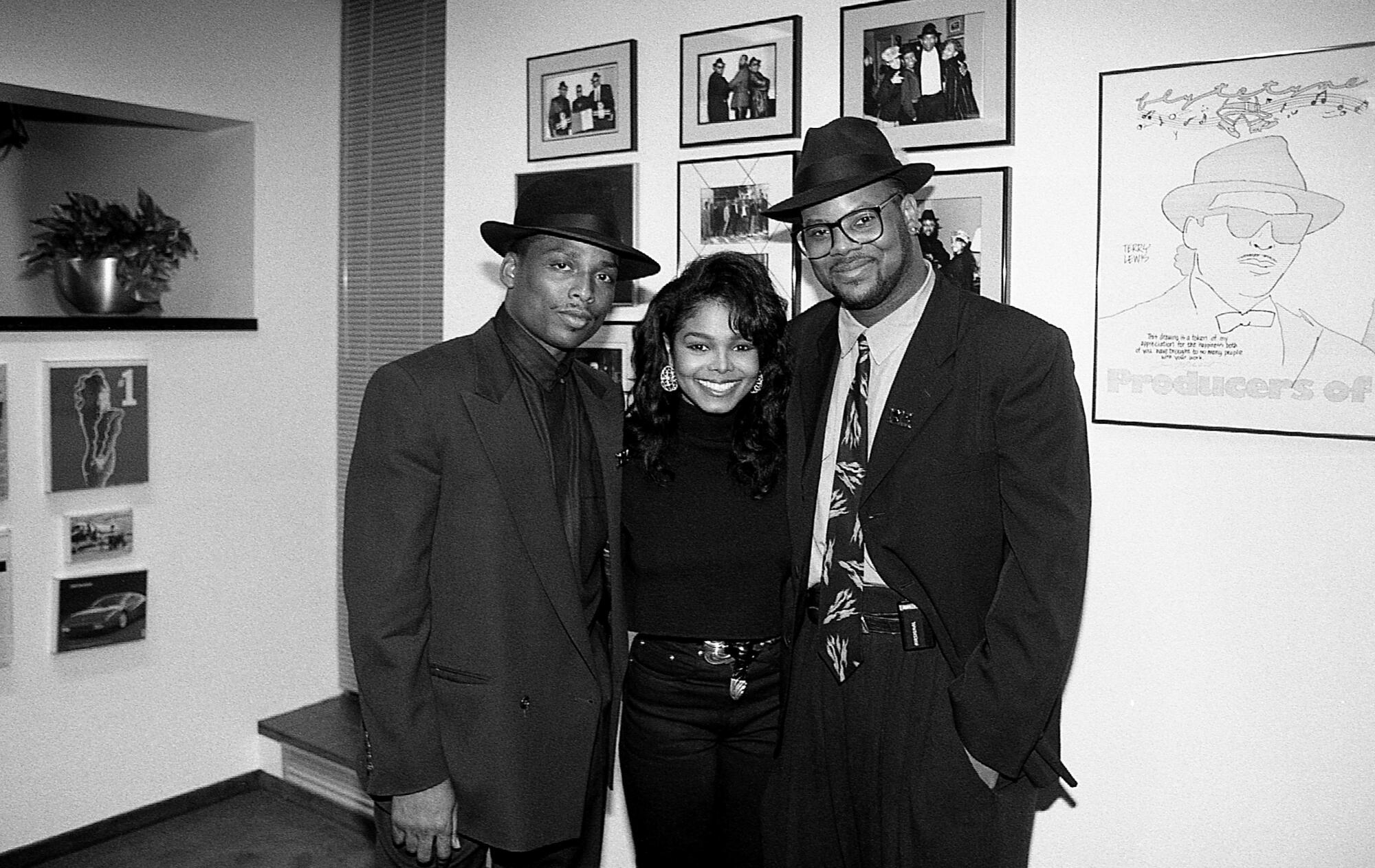
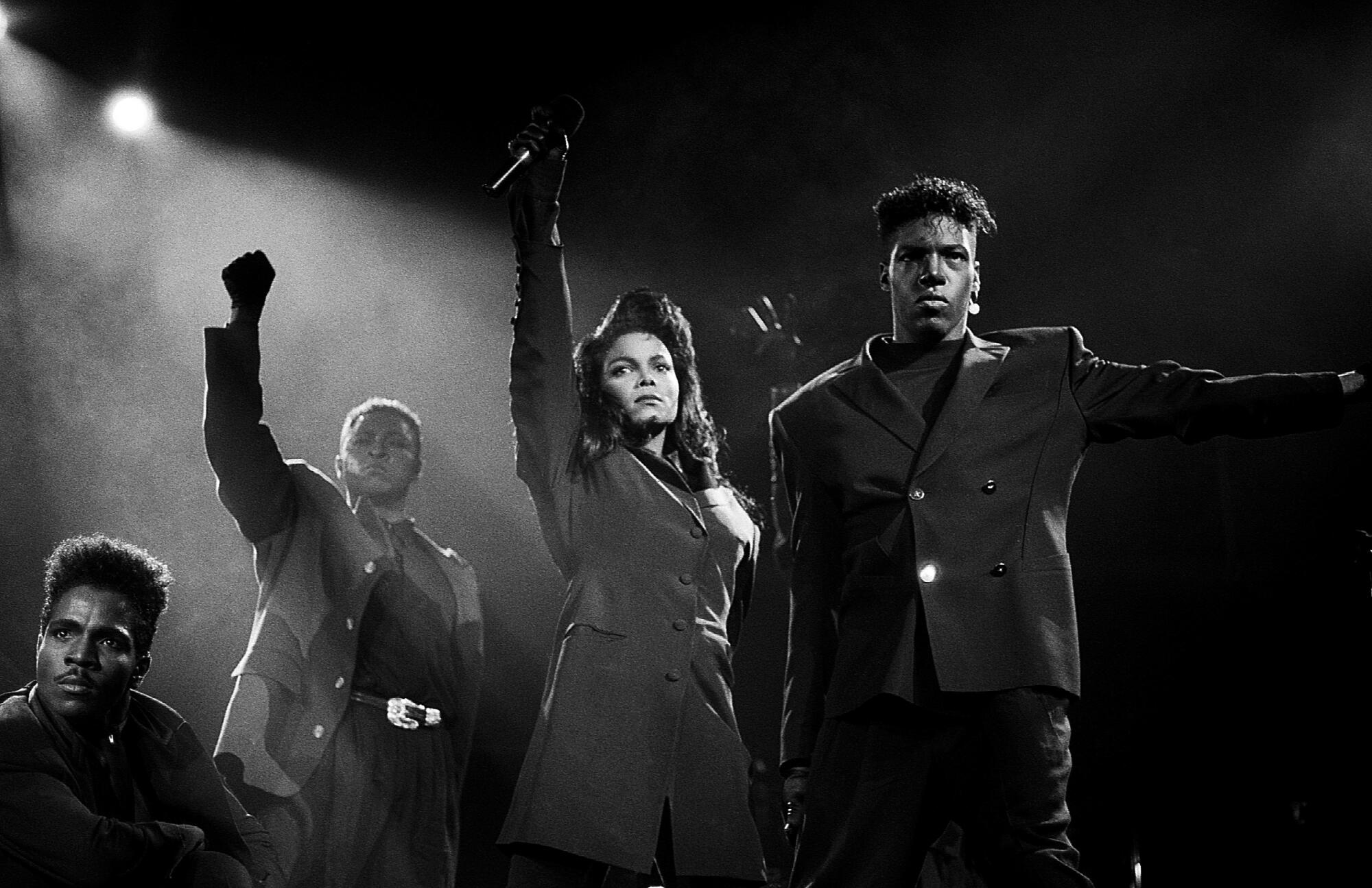
WOOD We see a bit of Janet’s studio process when she’s working in Minneapolis on “Rhythm Nation”; there’s a good scene of her butting heads with producer Jimmy Jam over a frustrating vocal take. But the doc didn’t have much to say about how Janet’s music works, nor did it really celebrate what makes it stand out.
Folks always talk about Janet not having a big voice, and that’s true enough compared to some of her fellow ’90s pop divas — Whitney, Mariah, Celine. But what it may have lacked in size it more than made up for in flexibility and rhythmic acuity.
The whispery approach Janet could take in a song like “Got ’Til It’s Gone” — I was thinking of that tune, with its prominent Joni Mitchell sample, all weekend as both women trended simultaneously on Twitter — has clearly been an inspiration for the likes of Tinashe and FKA twigs. The percussive way she rode a groove too: Listening now to “If,” from the early ’90s, I feel like she’s foretelling some of the changes to come in the blurred relationship between singing and rapping.
EXPOSITO Janet works with the rhythm like a dance partner. She’s nimble with it; she undulates her voice around it and lets it take interesting shapes. I love how she slinks catlike between the beat in “Nasty,” then takes a sharp turn á droite and arrests you with a “My name ain’t baby, it’s Janet — Miss Jackson if you’re nasty!”
KIMBLE The fact that people criticized her vocal ability in an attempt to discredit her shows how this was always an uphill battle for her, even in the midst of extreme success. Is she Whitney or Mariah? Absolutely not. However, she got the most out of her range and that approach worked for the sake of the music.
It fits the tone of “When I Think of You” — for the record, my favorite Janet song — which is bright and breezy as she communicates how enamored she is at the mere thought of someone. It’s perfect for the softness of a ballad like “Come Back to Me” because it accentuates the song’s feeling of yearning.
EXPOSITO Janet never had to be a belter like Whitney or Mariah to make evocative music — she was designing her own new diva steeze.
KIMBLE Something that might not have been stated explicitly but that I always understood to be true was that what she was doing, musically, was unmistakably Black. Yes, massive crossover appeal is part of her stardom, but Black people knew she was talking to them.
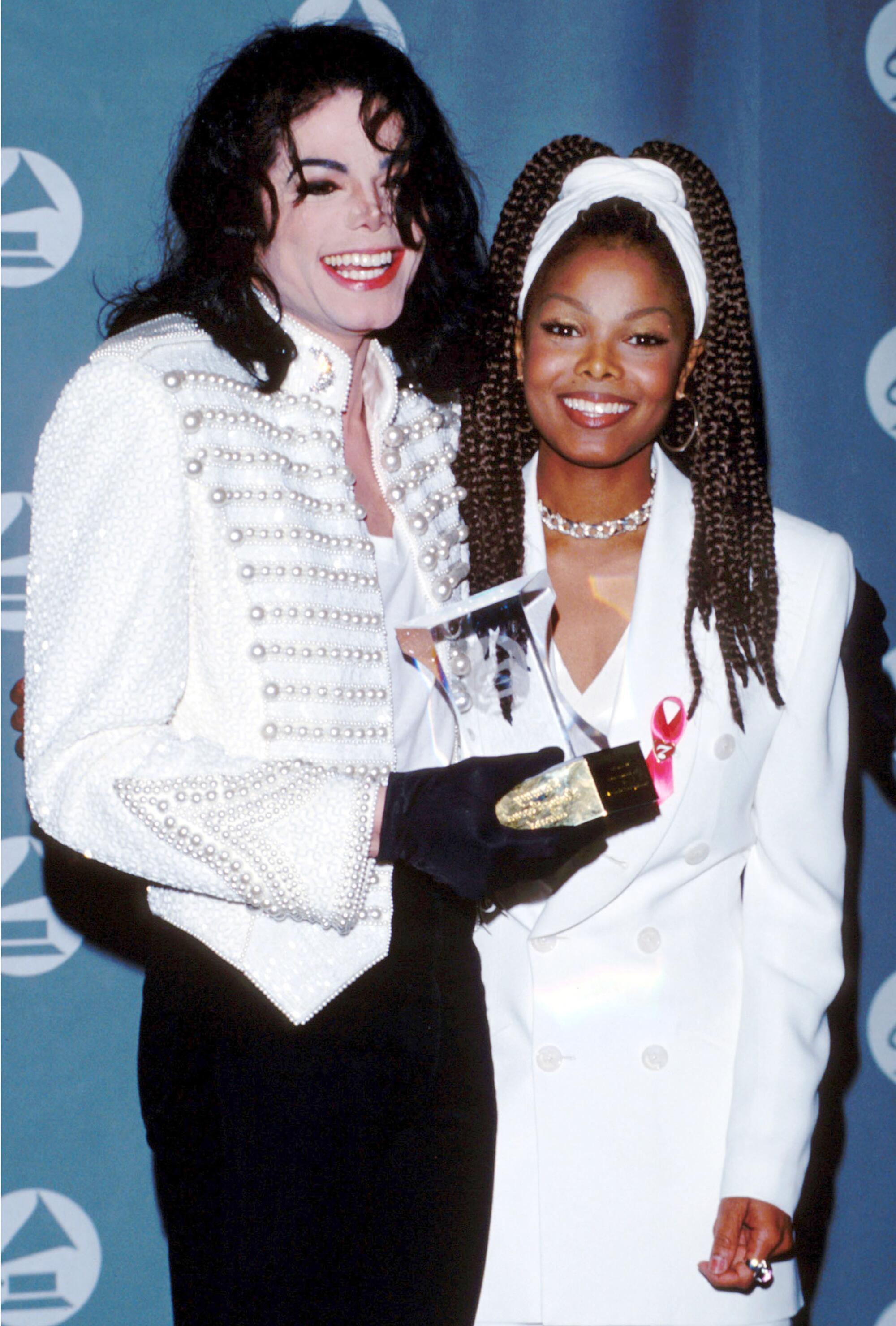
WOOD Let’s talk about the fallout from her 2004 Super Bowl halftime performance with Justin Timberlake. There was a part of me that wanted Janet to take this opportunity to unload on everybody involved — to enumerate the layers of hypocrisy involved in the whole moral panic of it all. But she basically takes the high road.
EXPOSITO Janet was very intentional about stating that the nip-slip was an accident, and that she harbors no ill will toward Justin Timberlake. Again, this is Janet naming the experience for herself. How she feels about it in hindsight is not something for us to agree or disagree with.
The most twisted thing about this documentary was seeing how men regularly assumed entitlement to Janet and her body, from her father to her ex-partners.
KIMBLE It’s infuriating that, despite everything she did to claim her own agency, her career is tethered to the actions of men — whether it’s Joe, or Michael, or Justin Timberlake, or former CBS chairman and CEO Les Moonves, who was allegedly determined to ruin her career after the Super Bowl incident.
As for her not unleashing the fury that so many others have expressed toward Timberlake or anyone else, she may have felt that way at some point over the past 18 years. If you revisit her 2006 interview with Oprah, she doesn’t sound quite as forgiving as she did in the doc. But at this point, she might just want to be done with it.
That doesn’t mean that other people want to ease up on Timberlake — which you could see if you looked at Twitter during the second night of the doc. In 2004, there was no Black Twitter to vociferously defend her, offer alternative perspectives on the situation or articulate just how dumb it would be for Janet to orchestrate something in which she had the most to lose for the sake of attention she did not want or need.
We’ve made some progress culturally, but the fact that Janet Jackson, who birthed a generation of artists, is still somehow underrated is ridiculous. But again, if you want to see society’s disdain for Black women in action, there you have it.
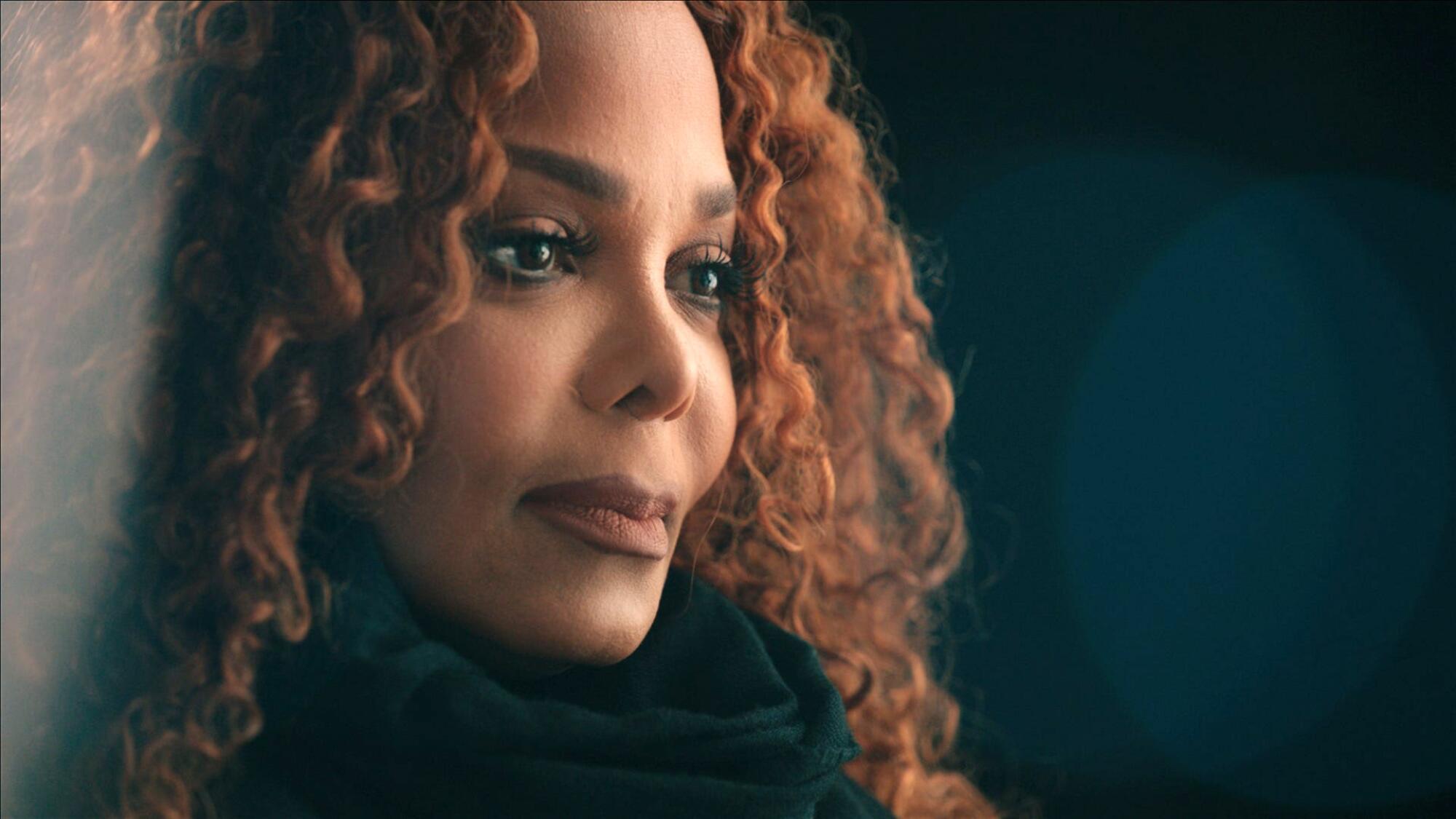
WOOD Julian, I love your point about the emergence of Black Twitter as a key to understanding the shifting perception of Janet. Any star with a career as long as Janet’s is bound to have moments when they recede in the cultural consciousness. But I wonder, had the modern tools of fandom been available for the last two decades, if she might never have needed to make a quote-unquote “comeback.”
KIMBLE I’ve spent a lot of time thinking about why Janet still feels underrated or less omnipresent compared to some of her peers. Racism and sexism are powerful in tandem, and she’s certainly grown more reclusive in recent years. In contrast, think about how Madonna is just … everywhere, even randomly popping up in rooms with Kanye and Julia Fox.
At the same time, there were opportunities for Janet to extend herself beyond music that she missed out on because of the backlash. The second half of the doc explains how she lost a Coca-Cola endorsement deal because of the allegations against Michael. A situation she wasn’t even directly involved in cost her money. And the Super Bowl made it so that she didn’t have access to the brand opportunities that the likes of Beyoncé or Rihanna later received. There’s no Savage X Janet or Hayvenhurst Park when there absolutely could have been.
So even though the tools of modern fandom would have helped people rally around Janet, she still would have had to contend with overlapping forms of discrimination. But I’m glad we’re seeing this outpouring of love and support on social and elsewhere. She damn sure deserves it.
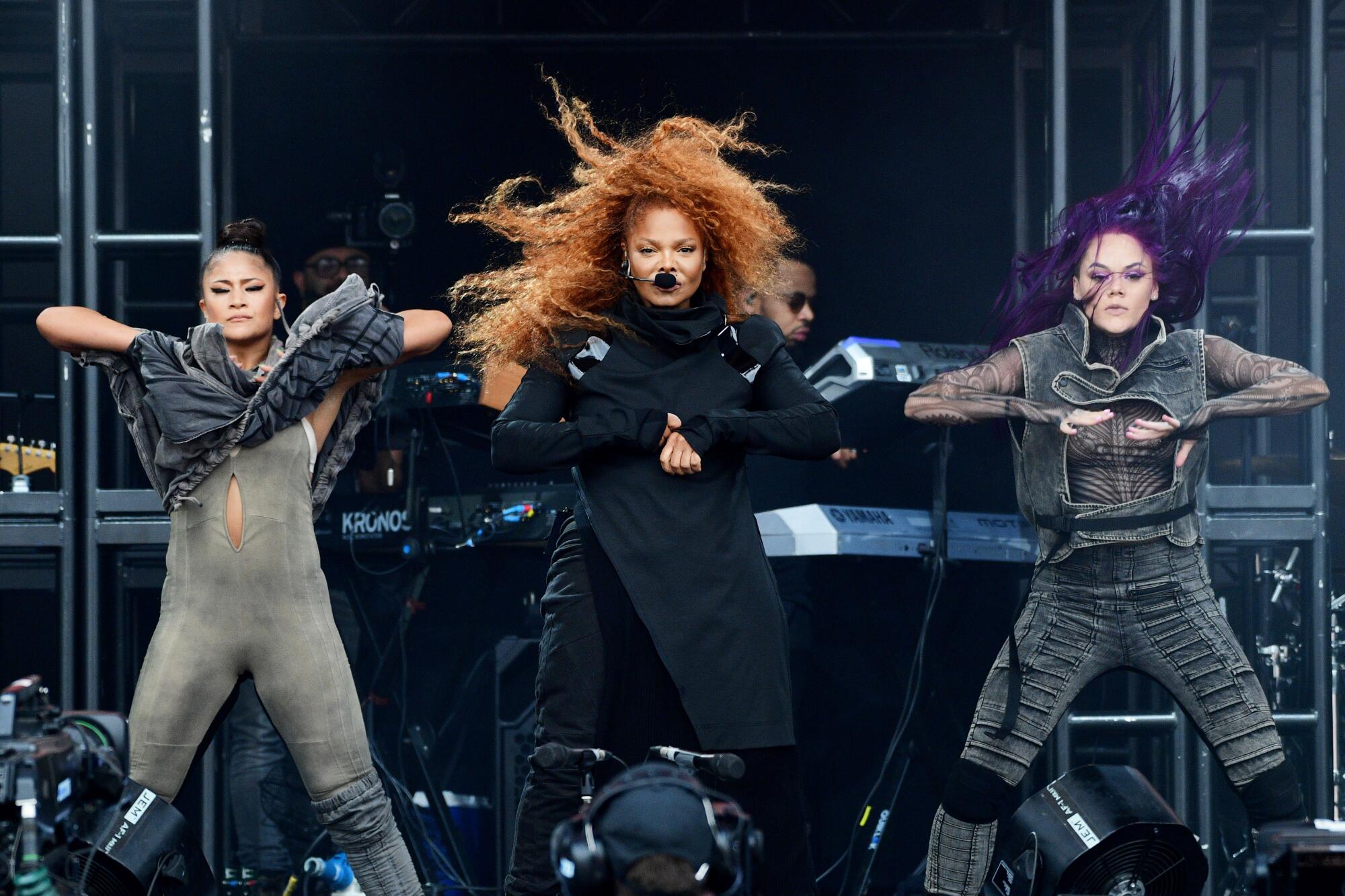
More to Read
The biggest entertainment stories
Get our big stories about Hollywood, film, television, music, arts, culture and more right in your inbox as soon as they publish.
You may occasionally receive promotional content from the Los Angeles Times.












